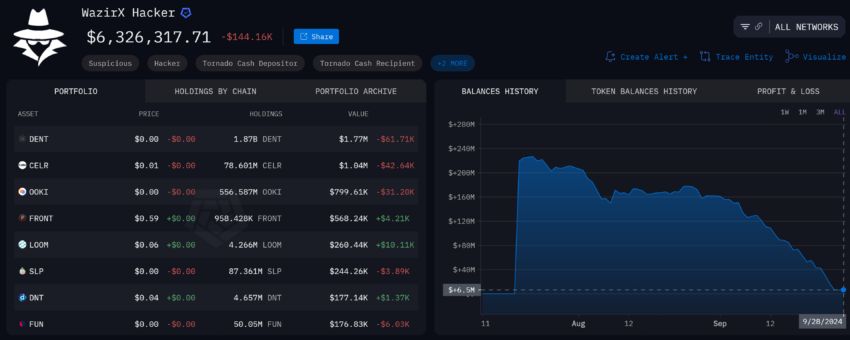This week’s summary features regulatory updates and advancements in the cryptocurrency landscape across Asia and MENA. Dubai’s regulatory authority has introduced new marketing regulations for cryptocurrencies, which will take effect on October 1, 2024. In South Korea, Worldcoin has been fined $830,000 for violating data privacy laws by improperly collecting sensitive biometric data.
As regulatory bodies enhance their oversight in the region, the cryptocurrency sector is undergoing significant changes that are likely to redefine its trajectory.
From October 1, 2024, businesses promoting virtual assets in Dubai will need to adhere to new marketing regulations established by the Virtual Asset Regulatory Authority (VARA). According to these guidelines, crypto advertisements must feature a clear disclaimer about the risks associated with crypto investments, stating explicitly that virtual assets may depreciate fully or partially and exhibit considerable volatility.
Alongside the new disclaimer requirements, VARA has implemented fines for non-compliance. Companies that fail to adhere to these marketing rules could incur penalties of up to AED 10 million (about $2.7 million).
Read more: How Does Regulation Impact Crypto Marketing? A Complete Guide
The penalty amount will be determined based on the gravity of the infraction. If a company commits repeated violations, it may be subjected to increased fines.
Moreover, virtual asset service providers (VASPs) offering incentives related to virtual assets are now required to secure compliance approval from VARA. This measure ensures that promotional content does not hide the risks that investors might encounter in the volatile crypto marketplace.
This regulatory shift is part of Dubai’s ongoing initiative to balance innovation in cryptocurrency with protection for consumers. As the region aims to establish itself as a global hub for blockchain and digital assets, the new rules intend to protect both retail and institutional investors from misleading advertising.
Worldcoin and TFH Penalized with $800,000 Fine for Data Breaches in South Korea
The Personal Information Protection Commission (PIPC) of South Korea has fined Worldcoin and its development team, Tools for Humanity (TFH), 1.14 billion Korean won ($830,000) for infringements related to the nation’s data protection regulations.
The fine is a result of Worldcoin collecting sensitive biometric data, including iris scans, from users in Korea without proper consent, and subsequently transferring this data to Germany without user notification. This further violates South Korea’s data privacy laws.
As corrective measures, the PIPC has directed Worldcoin to obtain explicit consent from users for sensitive data collection and enhance transparency regarding data storage and utilization. Additionally, the firm must implement an efficient data deletion system for users who wish to withdraw from the Worldcoin service.
Hong Kong’s Project e-HKD+ Investigates Tokenized Assets and Digital Currencies
Hong Kong Monetary Authority (HKMA) has unveiled the second phase of its digital currency project, now known as Project e-HKD+. This phase focuses on exploring advanced applications for digital money, such as tokenized deposits and broader uses in retail and corporate sectors.
Project e-HKD+ involves 11 firms that will undertake real-world trials involving tokenized asset settlements, programmable payments, and offline transactions. These pilot programs will provide essential insights into the viability and benefits of incorporating digital currencies within a larger economic framework.
The findings from Phase 2 will inform the future design and regulatory landscape for digital currencies in Hong Kong, with key takeaways set to be shared with the public by the end of 2025.
Eddie Yue, Chief Executive of the HKMA, noted that this initiative is crucial for positioning Hong Kong at the cutting edge of financial technology.
“The e-HKD Pilot Programme has provided a valuable opportunity for the HKMA to explore with the industry how new forms of digital money can add unique value to the general public. The HKMA will continue to adopt a use-case-driven approach in its exploration of digital money. We look forward to working closely with industry participants in Phase 2 to co-create various innovative use cases,” Yue stated.
The authority also intends to establish the e-HKD Industry Forum, a collaborative venue for industry leaders to discuss the broader adoption of digital currencies.
Indonesia’s Largest Bank Initiates Blockchain Pilot Project
Bank Rakyat Indonesia (BRI), the largest state-owned bank in Indonesia, is launching a blockchain pilot project aimed at enhancing the transparency and security of financial transactions. Announced during the Indonesia Blockchain Conference (IBC), this initiative is designed to optimize supply chains and safeguard business transactions for BRI’s vast customer base of 82 million.
Nitia Rahmi, Head of BRI’s Digital Banking Development Department, emphasized that this initiative is part of the bank’s comprehensive strategy to embrace Web3 technologies. Rahmi mentioned that the project would enhance BRI’s digital infrastructure and position the bank as a leader in blockchain adoption within Indonesia’s financial landscape.
As blockchain technology gains traction in Southeast Asia, BRI’s initiative aligns with a wider regional movement towards integrating decentralized technologies into conventional banking practices. The bank’s blockchain adoption is anticipated to set a benchmark for other institutions seeking to innovate and enhance financial operations.
WazirX Obtains Court Moratorium to Restructure Following $230 Million Hack
On September 26, Singapore’s High Court granted a four-month moratorium to Zettai Pte Ltd, the parent company of the Indian cryptocurrency exchange WazirX, after the platform faced a $230 million exploit in July.
This moratorium allows WazirX to reorganize its liabilities and address outstanding cryptocurrency balances for users. While the exchange initially requested a six-month moratorium, the court opted for a four-month period, taking into account the automatic 30-day moratorium that commenced with the initial filing.
Nischal Shetty, Director of Zettai and Founder of WazirX, expressed appreciation for the court’s ruling, calling it a pivotal step towards recovery and resolution. He highlighted the necessity of this time frame to construct a fair, creditor-approved restructuring plan aimed at maximizing recovery for affected users.
As part of the court’s requirements, WazirX has committed to full transparency. The exchange will disclose its wallet addresses, release financial information, and address any user concerns raised during the legal process. Additionally, future votes on restructuring proposals will be monitored by independent bodies to ensure fairness.
Read more: Crypto Project Security: A Guide to Early Threat Detection

Simultaneously, blockchain data from Arkham Intelligence shows that the hacker responsible for the incident has nearly entirely laundered the stolen funds. Out of the $230 million, only $6 million in cryptocurrencies remains unlaundered. The hacker funneled most of the assets through the crypto mixer Tornado Cash.
Disclaimer
In compliance with the Trust Project standards, BeInCrypto is dedicated to impartial and transparent reporting. This news article seeks to provide accurate and timely information. However, readers are encouraged to verify facts independently and consult a professional before making decisions based on this content. Please be advised that our Terms and Conditions, Privacy Policy, and Disclaimers have been updated.








